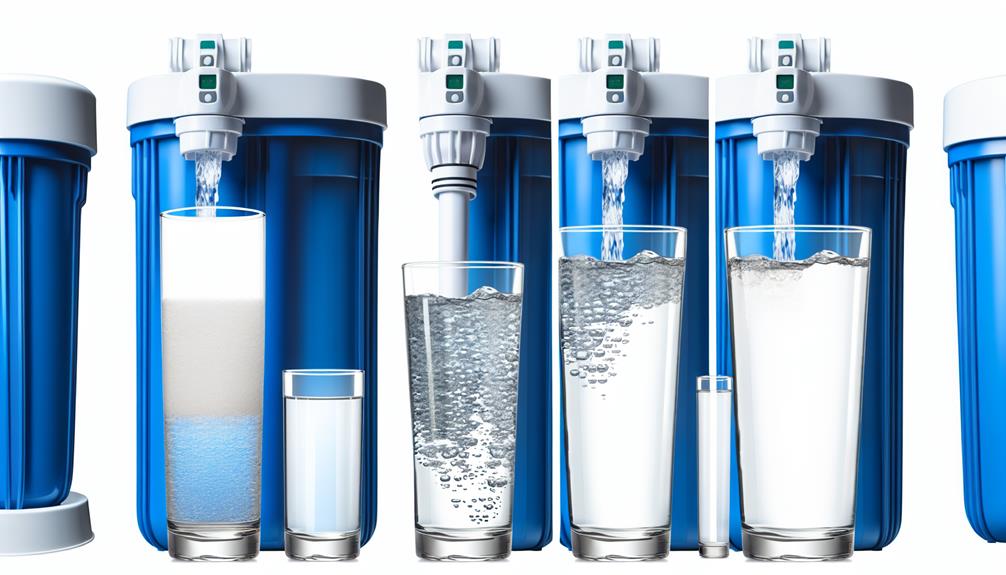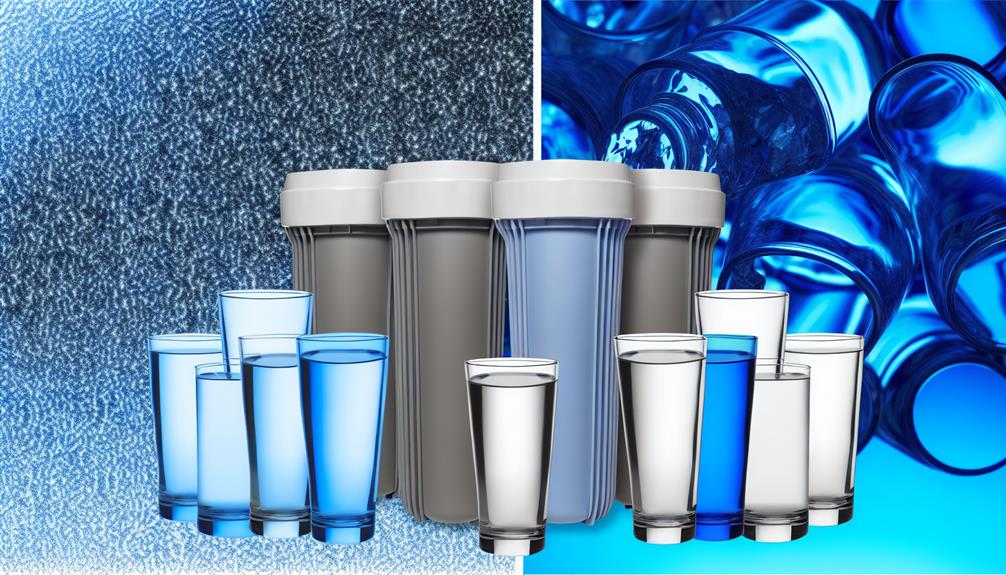Just as you're taking a sip of water from your kitchen faucet, you might wonder about the journey it's taken to reach you and what it's carrying along the way. You're not alone in this thought; many homeowners are turning their attention to the quality of their domestic water supply.
Investing in a whole home water filtration system ensures that every drop of water you use is clean, whether it's for drinking, cooking, or bathing. But why should you consider a system that filters all the water in your home, rather than just what you drink?
The answers are clear yet complex, touching on health, economics, and the very integrity of your home's infrastructure. Stick around to uncover the unseen benefits and potential savings that may just tip the scales in favor of filtration.
Benefits of Filtered Water
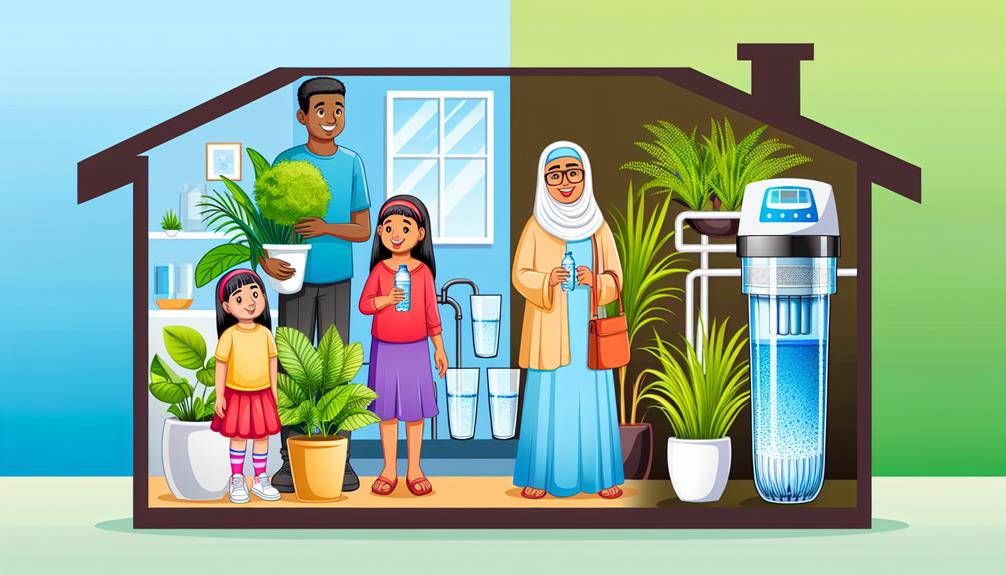
Investing in a whole home water filtration system ensures that you'll reap the benefits of cleaner, safer, and better-tasting water directly from every tap in your home.
The significance of water taste can't be understated, as it often serves as a primary indicator of water quality for many consumers. Substances such as chlorine, used as a disinfectant, can impart an unpleasant taste and odor, which a comprehensive filtration system effectively removes. Additionally, the presence of metals such as lead and copper, which can leach from corroded pipes, aren't only detectable through taste but also pose serious health risks.
Analyzing the health impact, filtered water significantly reduces the concentration of contaminants, including pesticides, bacteria, and viruses, which could otherwise lead to adverse health effects. Scientific studies have linked the consumption of unfiltered water to gastrointestinal diseases and developmental concerns, particularly in children. By employing a whole home water filtration system, you're not only enhancing the palatability of your drinking water but also mitigating potential health risks by removing harmful pathogens and chemicals.
In essence, the implementation of such a system is a proactive approach to safeguarding your well-being, ensuring that the water you consume and use daily is of the highest quality.
Types of Whole House Filters
Understanding the various types of whole house filters is crucial as they employ different technologies to target specific contaminants in your water supply. These systems are designed to ensure that water is treated before it circulates throughout your entire home, impacting both the healthfulness and usability of your water.
| Type of Filter | Key Features |
|---|---|
| Sediment Filters | Capture sand, silt, and rust; often used as a pre-filter |
| Carbon Block Filters | Absorb organic compounds and chlorine; improve taste and odor |
| Reverse Osmosis Systems | Use a semipermeable membrane to remove a wide range of contaminants |
| UV Purification Systems | Neutralize bacteria and viruses using ultraviolet light |
Each type comes with its own filter lifespan and contaminant removal capabilities. Sediment filters, for instance, may need more frequent replacement depending on the water's turbidity, while carbon block filters have a longer lifespan but vary in efficacy depending on the type of organic compounds present. Reverse osmosis systems are highly effective in contaminant removal, extracting particles as small as 0.0001 microns. However, they also require periodic maintenance to prevent membrane fouling. UV purification systems, on the other hand, do not physically remove particles but deactivate harmful microorganisms, thereby ensuring microbiological safety without altering water chemistry. When selecting a filter, it's vital to consider both the specific impurities present in your water and the maintenance requirements associated with each filtration technology.
Installation Process Overview
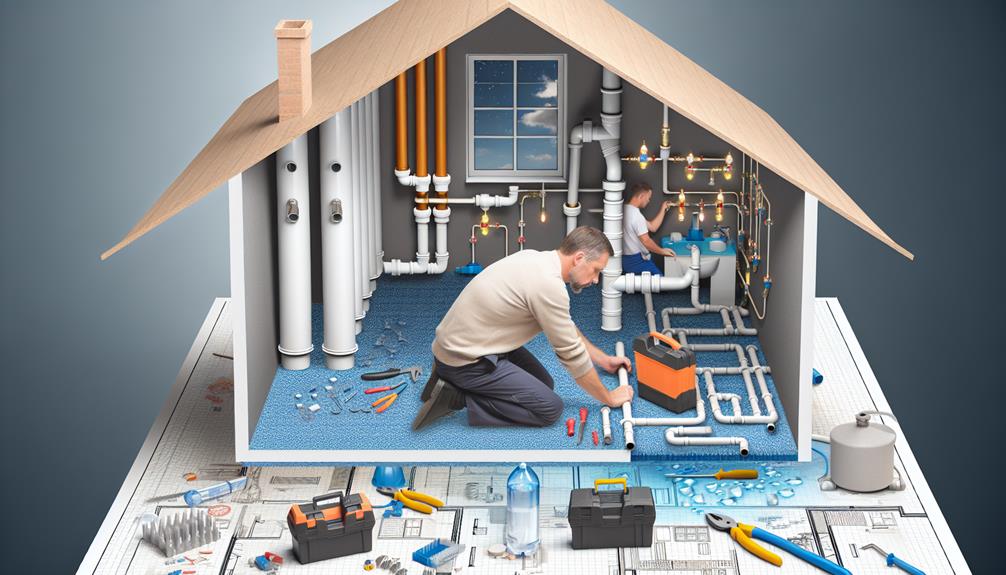
Embarking on the installation of a whole home water filtration system requires careful planning and a structured approach to ensure proper integration with your existing plumbing infrastructure. You must assess the installation timeline carefully, as it can vary widely based on the complexity of the system and the specifics of your home's plumbing. A standard installation might take a few hours, while more complex systems could require a full day or more.
When considering professional vs. DIY installation, evaluate your technical skills and knowledge of plumbing systems. Professional installation ensures that the system is integrated correctly, adhering to building codes and manufacturer specifications. Evidence suggests that professional installation can prevent costly mistakes and potential damage to your home. It typically includes a warranty for labor and parts, adding a layer of protection to your investment.
If you opt for DIY installation, it's crucial to follow the manufacturer's guidelines meticulously. The technical documentation should provide a detailed roadmap, but remember that any deviation from the prescribed process can lead to malfunctions or reduced efficiency. Always weigh the potential savings against the risks of DIY installation, as the latter could inadvertently increase long-term costs and negate the benefits of the filtration system.
Maintenance and Upkeep
To maximize the longevity and performance of your whole home water filtration system, regular maintenance and timely upkeep are essential. Understanding the critical role of maintenance can ensure that your system operates efficiently and effectively, prolonging filter lifespan and safeguarding water quality.
- Filter Inspection: Regularly inspect your filters for signs of sediment build-up or damage. Evidence-based guidelines suggest that visual inspections should occur at least biannually to detect anomalies that could indicate a decline in filtration efficiency.
- Cleaning and Flushing: Perform routine cleaning and system flushing to prevent clogs and maintain optimal water flow. Technical manuals often provide specific instructions tailored to your system's requirements.
- Replacement Indicators: Stay vigilant for replacement indicators, such as a noticeable decrease in water pressure or changes in water taste or odor, which can signal that filters are nearing the end of their service life.
An analytical approach to maintenance involves keeping detailed records of system performance and replacement history. This data-driven strategy not only anticipates potential issues but also schedules preventive measures before problems escalate.
Prioritizing maintenance not only upholds water purity but also circumvents costly repairs, making it a critical aspect of whole home water filtration ownership.
Cost-Benefit Analysis
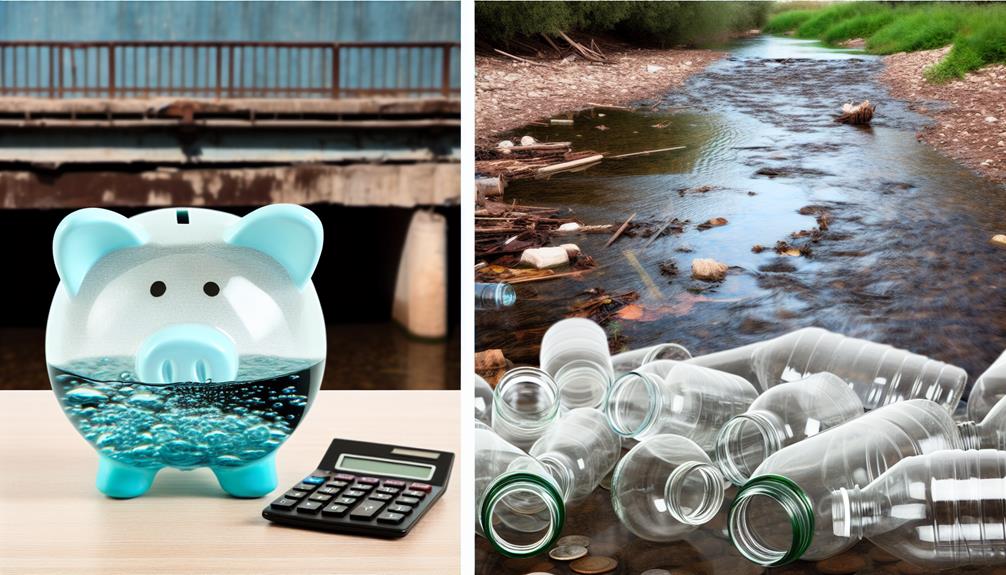
When weighing the merits of installing a whole home water filtration system, it's crucial to consider both its long-term cost savings and the upfront investment. You'll find that although the initial cost can be significant, the long-term benefits often outweigh these expenses.
A detailed cost-benefit analysis reveals that a whole home water filtration system can reduce the frequency of health issues linked to contaminated water, which in turn may decrease your medical expenses. Health implications of unfiltered water aren't just potential illnesses; they can also include long-term chronic conditions, which can become a substantial financial burden over time. By mitigating these risks, you protect your health and wallet.
Furthermore, the environmental impact of a filtration system is less tangible but equally important. By reducing your reliance on bottled water, you're contributing to decreased plastic waste and lower carbon emissions associated with the production and transportation of bottled water. This shift can lead to significant environmental benefits over time.
Conclusion
In conclusion, investing in a whole home water filtration system ensures you're safeguarding your health, enhancing water quality, and potentially increasing your home's value.
With varied filter types available, you can tailor the system to your specific water concerns.
Although initial setup and maintenance require commitment, the long-term savings on bottled water and reduced plumbing issues present a compelling cost-benefit case.
Analyze your household's needs to make an informed decision on this vital investment.
